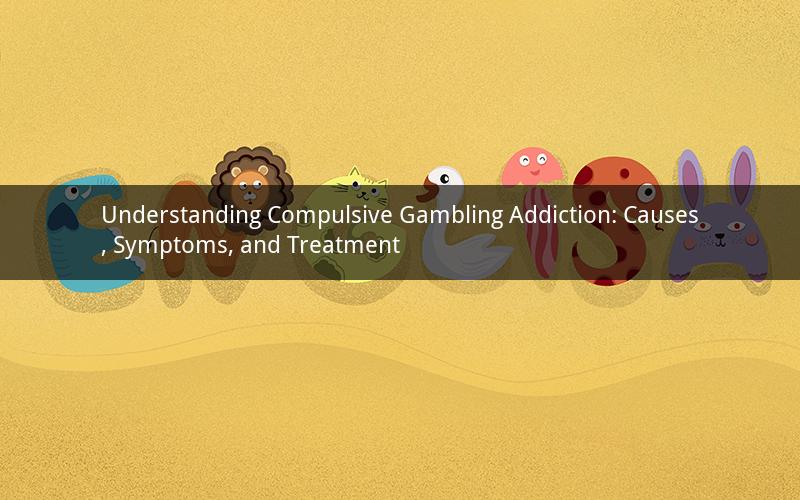
Compulsive gambling addiction, also known as gambling disorder, is a serious condition that affects millions of people worldwide. This addiction is characterized by an uncontrollable urge to gamble, despite the negative consequences it may have on one's life. In this article, we will delve into the causes, symptoms, and treatment options for compulsive gambling addiction.
Causes of Compulsive Gambling Addiction
1. Genetic Factors: Research suggests that genetics play a significant role in the development of compulsive gambling addiction. Certain genes may make individuals more susceptible to developing gambling problems.
2. Environmental Factors: The environment in which an individual grows up can also contribute to the development of compulsive gambling addiction. For example, exposure to gambling at a young age or having a family member with a gambling problem can increase the risk.
3. Psychological Factors: Individuals with certain personality traits, such as impulsivity and a need for excitement, may be more prone to developing gambling addiction. Additionally, those who have experienced trauma or have a history of mental health issues may be at a higher risk.
Symptoms of Compulsive Gambling Addiction
1. Preoccupation with Gambling: Individuals with compulsive gambling addiction often think about gambling constantly, even when they are not engaged in the activity.
2. Loss of Control: Despite attempts to stop gambling, individuals with this addiction may find it difficult to control their urge to gamble.
3. Increased Risk-Taking: Gamblers with addiction may take greater risks, such as betting larger amounts of money or engaging in more dangerous forms of gambling, in an attempt to recoup their losses.
4. Neglect of Responsibilities: Compulsive gamblers may neglect their personal, professional, and family responsibilities due to their gambling habits.
5. Emotional and Physical Symptoms: Individuals with gambling addiction may experience emotional symptoms such as anxiety, depression, and irritability. Physical symptoms may include insomnia, fatigue, and weight loss.
Treatment Options for Compulsive Gambling Addiction
1. Cognitive Behavioral Therapy (CBT): CBT is a type of therapy that helps individuals recognize and change negative thought patterns and behaviors. CBT can be effective in treating compulsive gambling addiction by helping individuals develop healthier coping mechanisms.
2. Medication: While there is no specific medication for treating compulsive gambling addiction, certain medications may be used to address co-occurring mental health issues, such as depression or anxiety.
3. Support Groups: Support groups, such as Gamblers Anonymous, can provide individuals with a sense of community and support. These groups offer a safe space for individuals to share their experiences and learn from others who have faced similar challenges.
4. Inpatient and Outpatient Treatment: Inpatient treatment programs provide a structured environment for individuals with gambling addiction to receive comprehensive care. Outpatient programs allow individuals to receive treatment while living at home.
5. Financial Counseling: Financial counseling can help individuals with gambling addiction manage their finances and develop a budget to prevent future gambling-related problems.
Frequently Asked Questions
1. Q: Can compulsive gambling addiction be cured?
A: While there is no guaranteed cure for compulsive gambling addiction, treatment can significantly improve an individual's chances of recovery.
2. Q: Is compulsive gambling addiction a mental health disorder?
A: Yes, compulsive gambling addiction is classified as a mental health disorder in the Diagnostic and Statistical Manual of Mental Disorders (DSM-5).
3. Q: Can someone with a gambling addiction recover without treatment?
A: It is possible for individuals with gambling addiction to recover without treatment, but the chances of long-term recovery are significantly higher with professional help.
4. Q: How long does treatment for compulsive gambling addiction typically last?
A: The duration of treatment for compulsive gambling addiction varies depending on the individual's needs and progress. Some individuals may require short-term treatment, while others may benefit from ongoing support and therapy.
5. Q: Can compulsive gambling addiction be prevented?
A: While there is no foolproof way to prevent compulsive gambling addiction, being aware of the risk factors and seeking help early can reduce the likelihood of developing this condition.